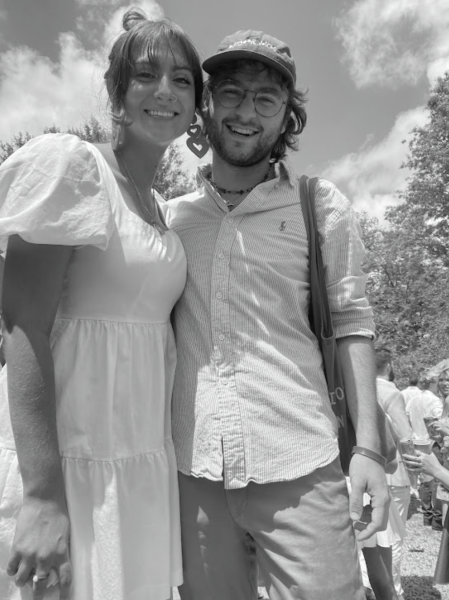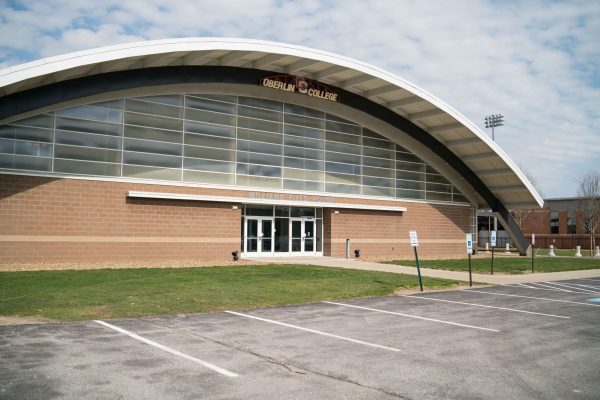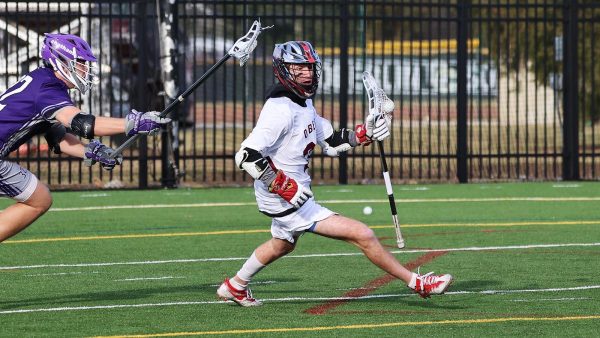Students Must Exit Comfort Zones, Bridge Divides
My first few classes at Oberlin were some of the most uncomfortable times of my life. I remember sitting in Econ 101, sweat covering my forehead because I desperately didn’t want to say or do anything that would draw attention from the other 100 people sitting in King 106.
Things were different in high school. I would thrive off the attention I received from fellow classmates and did anything I could to make sure all eyes were on me. At Westlake High School, a little over 30 minutes away from Oberlin, I participated in football, track and field, musicals, plays, choirs, and pep rallies — anything that would make people notice me.
Still, in that lecture hall on my first day of college classes, all I could think was, “Please, God, no one look at me.” However, I’m 6’2” and 265 pounds with one of the loudest voices, so I’m pretty hard to miss. After this realization, I came to terms with who I am and started thinking of ways to make the most of my college experience rather than fear it. I decided to start participating in my classes, joined a few clubs, went to more public events and concerts, and even ran for Student Senate. These forays into the public eye gave me a new perspective that I hope others can obtain.
We hear a lot about the athlete/non-athlete divide here. For athletes, it’s easy to feel comfortable amongst other athletes, and we even start to buy into the athlete stereotype. We study with our teammates or other fellow athletes in the atrium, take over a big table at Stevenson Dining Hall, and walk around campus sporting our varsity jackets.
As a regular concert-goer and taker of many small classes, I’ve noticed something similar among non-athletes. If you want to be comfortable in that world, it’s easy. If I buy some Doc Martins, wear a pair of torn-up jeans, and tie it all together with a beanie, strangers would never guess that I’m a football player.
Where does this leave people like me who live in the middle, then? Imagine a campus where nobody played into stereotypes — the North-South divide was no longer spoken of, and members of either side stopped complaining about the other in the Review or The Grape or the Oberlin meme page.
It’s as if Oberlin College is a high school, where we all join a certain group because it makes us feel comfortable: band or theater or athletics, to name a few. But we don’t have to come here for another four years of high school. I think Oberlin should be a place that challenges you to break out of your comfort zone.
College is supposed to be different, especially at a place like Oberlin, where people are coming from all locations on the map and bringing with them all sorts of interests and perspectives. Oberlin gives us all an opportunity to push our boundaries and meet some of the most interesting people we may ever have the chance to learn from.
Some may think of me as a “dumb jock.” Others may say I’m an “Obie sympathizer” and don’t fully understand how harshly some outsiders view members of the athletics department. Although both may be true to an extent, I wish we could look at the bigger picture and stop judging one another. I wish we would show one another more compassion and appreciation, because we all play a role on this campus and help make it the wonderful institution that it is.
I want to bridge the gap between athletes and non-athletes and help others break through the confines of their comfort zones, because I believe it would help us all feel a sense of belonging. If my future children come to Oberlin, my hope is that after the excitement of freedom from home wears off, they won’t feel like many of us here do on a daily basis: isolated.






